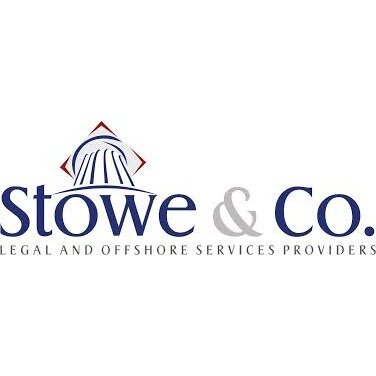Best Public-Private Partnerships (PPP) Lawyers in Dominica
Share your needs with us, get contacted by law firms.
Free. Takes 2 min.
Or refine your search by selecting a city:
List of the best lawyers in Dominica
About Public-Private Partnerships (PPP) Law in Dominica
Public-Private Partnerships, commonly known as PPP, are collaborative agreements between government entities and private sector companies to finance, build, and operate projects that serve the public interest. In Dominica, PPPs are increasingly used for infrastructure development, including transport, energy, education, water supply, and healthcare. These partnerships leverage the strengths and resources of both sectors, aiming to provide more efficient, innovative, and sustainable public services. The legal framework for PPPs in Dominica is designed to ensure transparency, fair competition, and effective risk allocation while fostering economic growth and public benefit.
Why You May Need a Lawyer
Engaging in a Public-Private Partnership involves complex legal, financial, and regulatory considerations. You may require legal assistance for several reasons:
- Drafting and reviewing PPP agreements to ensure compliance with Dominican law
- Understanding the tendering and procurement procedures for PPP projects
- Negotiating terms on risk-sharing, revenue, and project responsibilities
- Ensuring all environmental, tax, and regulatory requirements are met
- Resolving disputes that arise during project implementation or management
- Securing licenses, permits, or land rights as required by law
- Assessing potential liabilities and structuring indemnity provisions
- Navigating issues related to foreign investment or cross-border funding
- Ensuring protection of intellectual property and proprietary information
Professional legal guidance can help safeguard your interests, minimize risk, and facilitate successful project outcomes for both public authorities and private investors.
Local Laws Overview
Dominica has established legal and regulatory frameworks to govern the procurement, execution, and oversight of Public-Private Partnership projects. Key aspects include:
- Procurement Laws: All PPP projects must follow public procurement regulations, which emphasize transparency, competitive bidding, and value for money.
- PPP Policies and Guidelines: The government issues specific policies to guide PPP project selection, contract management, and dispute resolution mechanisms.
- Investment Laws: The legal environment is conducive to both local and foreign investors, offering incentives and protections under the Investment Promotion Act.
- Contractual Framework: Contracts must clearly define roles, risk allocation, financing structures, and performance indicators to ensure accountability and sustainability.
- Environmental and Social Safeguards: PPP projects are required to comply with national environmental laws, regulations, and public consultation processes.
- Sector Specific Regulation: Certain sectors, such as utilities or telecommunication, may require compliance with additional sectoral regulations.
Legal due diligence is critical throughout the PPP lifecycle, from project identification to execution and eventual transfer or completion.
Frequently Asked Questions
What is a Public-Private Partnership (PPP)?
A PPP is a structured collaboration between a government and a private entity to finance, develop, and manage projects that benefit the public, such as roads or hospitals.
Who can participate in PPP projects in Dominica?
Both local and international private companies may participate in PPPs, provided they meet the qualifications and standards set by Dominican authorities.
Are there specific laws regulating PPPs in Dominica?
While there is no single PPP Act, various laws and regulations, including public procurement, investment, and finance laws, collectively govern PPPs in Dominica.
How are PPP projects selected?
Projects suitable for PPPs are selected based on public need, economic feasibility, value for money, and alignment with national development goals.
What is the typical structure of a PPP agreement?
A PPP agreement outlines the roles, financial contributions, risk-sharing arrangements, and performance standards expected from both public and private partners.
How are disputes resolved in PPP projects?
Dispute resolution mechanisms are usually specified in the agreement and may include negotiation, mediation, arbitration, or recourse to Dominican courts.
Are PPP contracts subject to public oversight?
Yes, government agencies oversee the procurement and execution of PPP contracts to ensure accountability and transparency.
What kind of incentives are available for PPP investors?
Incentives may include tax benefits, partial guarantees, or other government support as outlined in investment and incentive laws.
Can foreign companies invest in PPP projects in Dominica?
Yes, foreign companies are encouraged to invest, subject to local laws and regulatory requirements.
What are the main risks involved in PPPs?
Risks include project delays, cost overruns, regulatory changes, demand fluctuations, and disputes between partners. These should be carefully addressed in the contract.
Additional Resources
If you require more information or assistance regarding PPPs in Dominica, consider reaching out to the following organizations and government bodies:
- Ministry of Finance, Economic Development, Climate Resilience and Social Security
- Invest Dominica Authority (IDA)
- Government Procurement Board of Dominica
- Dominica Bar Association
- Public Works and Digital Economy Ministry
- Chambers of commerce and professional business associations
These institutions provide guidance on PPP policies, investment opportunities, regulatory procedures, and legal representation in Dominica.
Next Steps
If you are considering involvement in a Public-Private Partnership project in Dominica and require legal assistance, take the following steps:
- Identify your project objectives and the type of partnership you are interested in
- Consult official government sources for regulatory requirements and available PPP opportunities
- Contact a lawyer experienced in PPPs, project finance, and relevant Dominican laws
- Prepare any documentation or business plans needed for consultations
- Discuss your project, legal requirements, and any potential risks with your lawyer
- Ensure ongoing legal support throughout the bidding, negotiation, implementation, and operation phases of your PPP project
Taking these steps with professional legal support increases your chances of success and helps you navigate the complexities of PPPs in Dominica safely and effectively.
Lawzana helps you find the best lawyers and law firms in Dominica through a curated and pre-screened list of qualified legal professionals. Our platform offers rankings and detailed profiles of attorneys and law firms, allowing you to compare based on practice areas, including Public-Private Partnerships (PPP), experience, and client feedback.
Each profile includes a description of the firm's areas of practice, client reviews, team members and partners, year of establishment, spoken languages, office locations, contact information, social media presence, and any published articles or resources. Most firms on our platform speak English and are experienced in both local and international legal matters.
Get a quote from top-rated law firms in Dominica — quickly, securely, and without unnecessary hassle.
Disclaimer:
The information provided on this page is for general informational purposes only and does not constitute legal advice. While we strive to ensure the accuracy and relevance of the content, legal information may change over time, and interpretations of the law can vary. You should always consult with a qualified legal professional for advice specific to your situation.
We disclaim all liability for actions taken or not taken based on the content of this page. If you believe any information is incorrect or outdated, please contact us, and we will review and update it where appropriate.
Browse public-private partnerships (ppp) law firms by city in Dominica
Refine your search by selecting a city.











